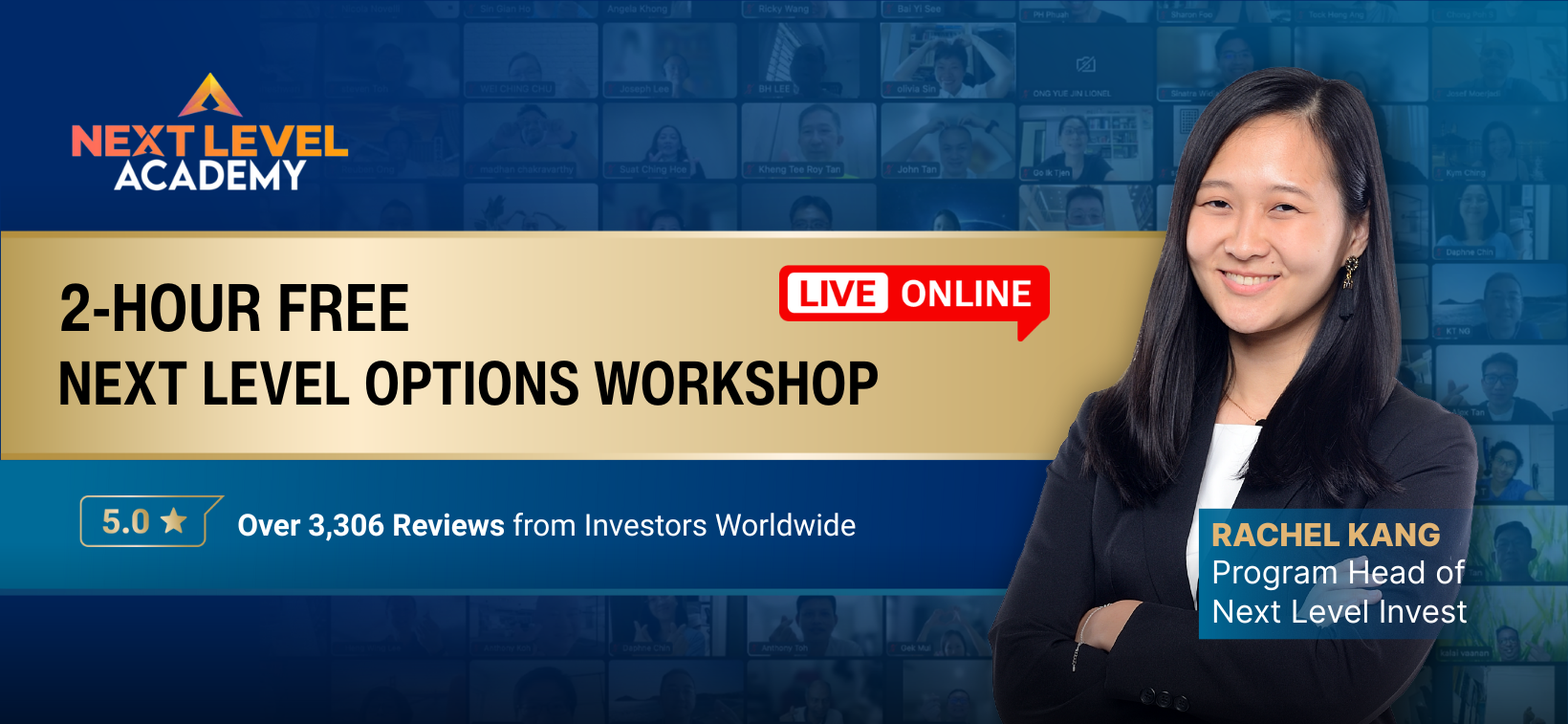- Live Life Grow Wealth
- Posts
- 🌐 Series 9 Day 1: How the Global Economy Impacts Your Investments
🌐 Series 9 Day 1: How the Global Economy Impacts Your Investments

Today’s Headline
🌐 Series 9: Global Investing & Economic Forces
Day 1: How the Global Economy Impacts Your Investments
Whenever people talk about investing, most of them focus only on the stocks they buy.
They look at charts, company news, and price movements.
But there is something much bigger that controls the direction of all markets—something powerful that sits above every stock, every sector, and even every country.
That force is the global economy.
When I first started investing, I ignored it completely.
I thought global events were too big, too complicated, or not relevant to me.
But I learned very quickly that the world is connected in a way that affects everything I own.
A small shock in one country can send waves across the entire world.
That is why this new series exists.
I want to help you understand how global events shape your investments, even if you’ve never studied economics before.
You don’t need a finance degree.
You just need to understand how money moves around the world.
Today, let’s begin with the basics.
Let’s explore how the global economy affects your portfolio, your financial decisions, and your long-term success as an investor.
“If You Enjoy My Daily Investing Insights, Click Here — I Found an Investment Tool You Don’t Want to Miss.”
But what can you actually DO about the proclaimed ‘AI bubble’? Billionaires know an alternative…
Sure, if you held your stocks since the dotcom bubble, you would’ve been up—eventually. But three years after the dot-com bust the S&P 500 was still far down from its peak. So, how else can you invest when almost every market is tied to stocks?
Lo and behold, billionaires have an alternative way to diversify: allocate to a physical asset class that outpaced the S&P by 15% from 1995 to 2025, with almost no correlation to equities. It’s part of a massive global market, long leveraged by the ultra-wealthy (Bezos, Gates, Rockefellers etc).
Contemporary and post-war art.
Masterworks lets you invest in multimillion-dollar artworks featuring legends like Banksy, Basquiat, and Picasso—without needing millions. Over 70,000 members have together invested more than $1.2 billion across over 500 artworks. So far, 23 sales have delivered net annualized returns like 17.6%, 17.8%, and 21.5%.*
Want access?
Investing involves risk. Past performance not indicative of future returns. Reg A disclosures at masterworks.com/cd
🌍 Why the Global Economy Matters to You
The global economy is like the world’s heartbeat.
It controls how money flows, how businesses grow, and how countries trade with one another.
Even if you never leave your home country, your investments feel the impact of what happens across the globe.
Here’s the truth:
You cannot escape global forces.
They affect:
The price of goods
The strength of your currency
The performance of your stocks
Interest rates
Inflation
Job markets
Commodities like oil, gold, and food
If a giant country slows down, the whole world feels it.
If a major conflict happens, markets react instantly.
If interest rates change in one region, stock prices everywhere move.
You may think the world is complicated.
But when you break it down, the patterns become simple.
And once you understand these patterns, investing becomes much easier and less scary.
🌐 The World Is Connected — Here’s Why That Matters
Imagine every country in the world as a house on the same street.
If one house burns, the fire can spread.
If one house improves, the entire street becomes more valuable.
That is how global markets work.
Countries trade goods.
Banks lend money across borders.
Companies operate internationally.
Investors move capital around the world.
This creates a giant web where everything is linked.
Here are three simple examples:
1. When China slows down, global stocks fall.
China buys raw materials from many countries.
If China stops buying, bigger forces will push commodity prices down.
This affects mining stocks, energy stocks, and even your local markets.
2. When the U.S. raises interest rates, the whole world feels it.
The U.S. dollar becomes stronger.
Emerging markets become weaker.
Global investors shift money into safer assets.
3. When oil prices rise, everything becomes more expensive.
Transport becomes costly.
Businesses’ expenses rise.
Inflation goes up around the world.
Every global event connects back to your investment portfolio.
Understanding this gives you a powerful advantage.
💱 Currencies: The Invisible Hand That Moves Markets
Most beginners underestimate the power of currency strength.
But currency changes can make a good investment look bad—or make a bad investment look good.
Let me explain in simple terms.
When your country’s currency weakens:
Imported goods become more expensive
Inflation rises
Companies that rely on imports struggle
Global investors may avoid your market
When your currency strengthens:
Imported items become cheaper
Inflation may reduce
Your stock market may attract more global investors
If you invest in foreign stocks, currency movements matter even more.
You might buy a great company overseas, but if the foreign currency falls, your returns shrink.
This is one reason why many professionals watch currency trends before investing.
Currencies are like silent signals that tell you where money is flowing globally.
“Love My Market Updates? Click Here — This Investing Resource Could Level Up Your Portfolio Fast.”
13 Investment Errors You Should Avoid
Successful investing is often less about making the right moves and more about avoiding the wrong ones. With our guide, 13 Retirement Investment Blunders to Avoid, you can learn ways to steer clear of common errors to help get the most from your $1M+ portfolio—and enjoy the retirement you deserve.
📈 Interest Rates: The Biggest Force Behind Market Movements
Interest rates are one of the strongest drivers of market direction.
They affect how people borrow, spend, save, and invest.
When a major central bank changes interest rates, the entire world reacts.
Let’s keep it simple.
When interest rates go up:
Borrowing becomes expensive
Spending slows
Businesses grow slower
Stock markets usually fall
People prefer safer investments
When interest rates go down:
Borrowing becomes cheaper
People spend more
Businesses expand
Stocks usually rise
People take more risks
The U.S. Federal Reserve is the most powerful influencer.
Even if you don’t live in the U.S., their decisions can make your market rise or fall overnight.
Why?
Because global money follows global interest rates.
And the U.S. controls a big part of that flow.
Whenever a major central bank raises or cuts rates, you should pay attention.
It tells you what the next wave in the market might look like.
🌏 Global Trade: How Imports and Exports Shape Your Investments
Trade between countries impacts nearly every industry you invest in.
When trade is strong, economies grow.
When trade slows, markets suffer.
Let me show you how trade affects investments in simple ways.
If a country exports a lot:
It earns money from other nations.
Its companies have strong revenue.
Its stock market becomes more attractive.
If a country relies too much on imports:
Its economy becomes vulnerable.
If currency weakens, costs rise.
Inflation may hit consumers harder.
Trade wars are especially dangerous.
When countries fight with tariffs, stocks become unstable.
Business costs rise.
Global uncertainty grows.
Investors hate uncertainty.
So markets drop quickly whenever trade tensions rise.
Keeping an eye on trade agreements, global supply chains, and export trends helps you understand where opportunities and risks might appear.
🔥 Global Events That Shake Markets
Some global events are so powerful that they shake the world instantly.
Even if the event happens thousands of miles away, your portfolio still reacts.
Here are the biggest ones:
1. Wars and geopolitical conflicts
These cause:
Oil price spikes
Market panic
Slower global trade
Higher inflation
Even a small conflict can create huge movements in markets.
2. Pandemics
We all saw what happened before.
Supply chains broke.
Businesses shut down.
Money flowed into safe assets like gold.
A global shock like that affects everything from jobs to stock prices.
3. Natural disasters
Major events like earthquakes, floods, or hurricanes can damage economies.
They increase costs, reduce production, and shift investor behaviour.
4. Government policy changes
A change in tax laws, economic policy, or trade rules can move markets instantly.
Even comments from global leaders can shake investor confidence.
5. Energy crises
When oil prices spike, global inflation jumps.
This affects everything—transportation, manufacturing, food, and more.
Whenever a major world event occurs, don’t only look at the news.
Look at how it affects your investments.
“If You Enjoy My Investing Tips, Click Here — This Could Be Your Next Big Advantage.”
Find your customers on Roku this Black Friday
As with any digital ad campaign, the important thing is to reach streaming audiences who will convert. To that end, Roku’s self-service Ads Manager stands ready with powerful segmentation and targeting options. After all, you know your customers, and we know our streaming audience.
Worried it’s too late to spin up new Black Friday creative? With Roku Ads Manager, you can easily import and augment existing creative assets from your social channels. We also have AI-assisted upscaling, so every ad is primed for CTV.
Once you’ve done this, then you can easily set up A/B tests to flight different creative variants and Black Friday offers. If you’re a Shopify brand, you can even run shoppable ads directly on-screen so viewers can purchase with just a click of their Roku remote.
Bonus: we’re gifting you $5K in ad credits when you spend your first $5K on Roku Ads Manager. Just sign up and use code GET5K. Terms apply.
💡 Global Economic Indicators Every Investor Should Know
You don’t need to become an economist, but you should know the major signals that investors look at.
These signals tell you whether the world is growing, slowing, or about to enter trouble.
Here are the key indicators:
1. GDP (Gross Domestic Product)
Shows how fast a country is growing.
Growing GDP = stronger markets.
Falling GDP = weak markets.
2. Inflation Rate
Measures how fast prices are rising.
High inflation can kill markets.
Low and stable inflation is ideal.
3. Unemployment Rate
Shows whether people have jobs.
More jobs = more spending.
More spending = more business growth.
4. Interest Rates
Controlled by central banks.
Affects borrowing, spending, and markets.
5. Manufacturing Index (PMI)
Shows whether factories are expanding.
A strong PMI means healthy economic activity.
6. Consumer Confidence Index
Shows whether people feel secure about their future.
Confident consumers spend more, which helps the market.
By learning these indicators, you’ll understand the global economy faster than most investors.
🌎 How the Global Economy Impacts Your Stocks
Global forces affect different sectors in different ways.
By understanding this, you can position your portfolio better.
Here’s a simple breakdown:
When global growth is strong:
Tech stocks rise
Consumer stocks rise
Transportation grows
Property markets improve
When global growth slows:
Defensive stocks like healthcare perform better
Utilities become safer
Gold and energy may rise
Risky stocks fall
When interest rates rise:
Bank stocks may benefit
Real estate becomes weaker
Growth stocks fall
Dividend stocks may rise
When inflation rises:
Commodity stocks rise
Consumer companies struggle
People buy less
Costs rise for businesses
Every stock you buy lives inside this global system.
Understanding the environment helps you make smarter decisions.
🌍 How the Global Economy Shapes Your Long-Term Wealth
You might think long-term investing is simple—just buy and hold.
But even long-term investors must understand global trends.
Economic cycles come in waves:
Boom
Slowdown
Recession
Recovery
These waves repeat again and again.
And each wave changes how markets behave.
Long-term investors do better when they understand where the global economy is heading.
If the world is entering a recession, you might want to be more defensive.
If it’s entering recovery, you might want to increase growth stocks.
The global economy doesn’t give you perfect timing.
But it gives you a roadmap.
Final Takeaways
If there is only one lesson you take from today, let it be this:
Your investments don’t live in a bubble. They live in the world.
And the world shapes everything.
The global economy affects your stocks, your money, your opportunities, and your long-term results.
Once you understand how global forces move, you stop being confused by sudden market changes.
You become more confident.
More strategic.
More prepared.
You don’t need to track every country.
You just need to understand how global events shape the flow of money.
With this knowledge, you become a smarter investor—one who stays ahead of the crowd.
📢 Call to Action
Before you end today’s lesson, I challenge you to do one simple task:
👉 Write down the global events or trends you think affect your investments the most.
It can be inflation, interest rates, wars, currency changes—anything.
This will train your mind to see the world the way investors do.
And once you develop this awareness, your investment decisions will improve dramatically.
Let’s continue this journey together in Series 9.
The world is big, but understanding it doesn’t have to be hard. I’ll guide you every step of the way.
[Live Life Grow Wealth]
🎓 Free Masterclasses to Unlock Your Investment Potential
Take your money skills to the next level with expert-led workshops designed to help you grow smarter and faster.
Recommendations Section
“Peek into smart money moves — when big players act, you’re in the loop.”
|
Learn simple, proven ways to grow your money — straight from real investors who walk the talk.
|
“Hone your investing edge in just 5 minutes — smart, snappy insights to power your portfolio growth.”
|
“Stay ahead with one expert-picked stock monthly — clear, no jargon, built for growth.”
DISCLAIMER
I make no representations, warranties, or guarantees, whether expressed or implied, that the content provided is accurate, complete, or up-to-date. Past performance is not indicative nor a guarantee of future returns.
I am an individual content creator and not regulated or licensed by the Monetary Authority of Singapore (MAS) as I do not provide investment services.
All forms of investments carry risks, including the risk of losing your entire invested amount. Such activities may not be suitable for everyone. You are strongly encouraged to seek advice from a professional financial advisor if you have any doubts or concerns.









